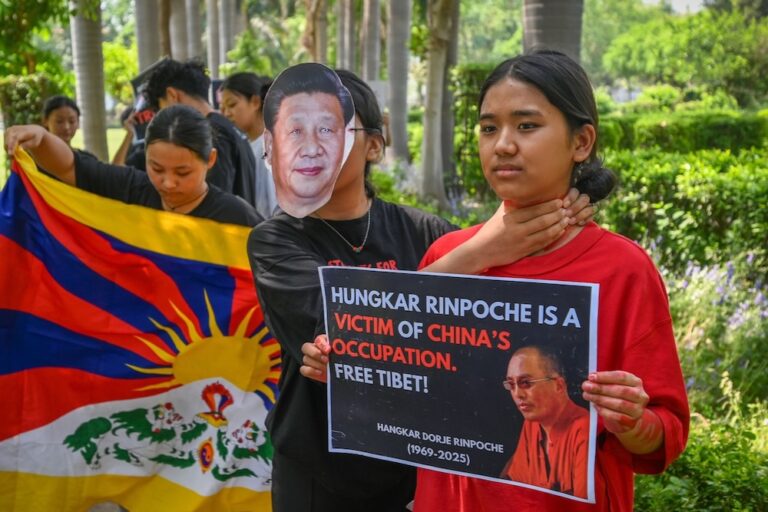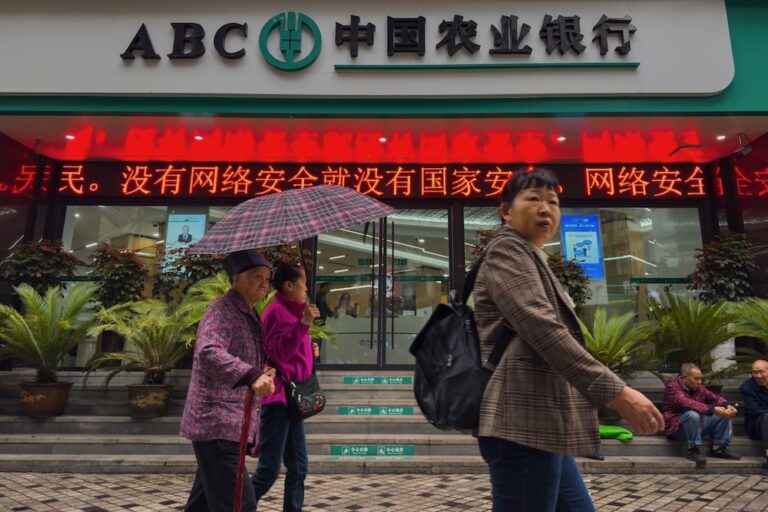(HRW/IFEX) – The following is a Human Rights Watch press release: Vietnam: Donors Should Protest Renewed Harassment of Dissidents (New York, September 7, 2001) — The Vietnamese government has launched one of its most intense crackdowns in recent years against its critics, Human Rights Watch charged today. This past week, some fifteen dissidents, many of […]
(HRW/IFEX) – The following is a Human Rights Watch press release:
Vietnam: Donors Should Protest Renewed Harassment of Dissidents
(New York, September 7, 2001) — The Vietnamese government has launched one of its most intense crackdowns in recent years against its critics, Human Rights Watch charged today. This past week, some fifteen dissidents, many of them former members of the Vietnamese Communist Party and military veterans, have been detained and interrogated.
Human Rights Watch urged the government to cease the harassment and release any detainees still in custody, and called on Vietnam’s donors to raise the issue directly with government authorities.
On September 5, police in Hanoi detained and interrogated former military historian Pham Que Duong, writer Hoang Tien, former high-ranking Party cadre Hoang Minh Chinh, journalist Nguyen Vu Binh, and film producer Duong Hung. Sources in Vietnam have reported that another ten activists, including scholar Tran Van Khue in Ho Chi Minh City and geologist and political essayist Nguyen Thanh Giang, have also been detained, at least temporarily, since September 6.
“This appears to be the largest and most systematic effort to intimidate Vietnamese dissidents in a long time,” said Sidney Jones, Asia director at Human Rights Watch. “Despite all the speculation after the Communist Party Congress earlier this year that a more reform-minded group was now in power, this is evidence that the new regime may be no more tolerant of dissent than the previous one.”
On Wednesday, September 5, Pham Que Duong, 70, was arrested at his Hanoi home at 7 a.m. by a dozen policemen, who delivered a written summons ordering him to go to police headquarters. He was interrogated by the police until 8 p.m. that night, when he was allowed to return home. His house was searched while he was in custody. On September 6 he was ordered to return to police headquarters for further interrogation on a daily basis until further notice.
Two other dissidents, writer Hoang Tien and film producer Duong Hung, who stopped by Pham Que Duong’s home on September 5 to inquire about his well-being, were subsequently taken into custody and escorted to police headquarters for questioning.
That same morning political critics Hoang Minh Chinh and Nguyen Vu Binh were arrested at Hoang Minh Chinh’s home and taken to police headquarters. The dissidents remain in detention during the day but are allowed to return home late in the evening on the condition that they report to police headquarters every morning. Police reportedly have been stationed outside of several dissidents’ homes and have taken visitors to police stations for questioning. Mobile telephones of most of Vietnam’s leading dissidents have been disconnected since September 5, making confirmation of their whereabouts difficult.
On September 2, just days before the interrogations, Pham Que Duong and Tran Van Khue submitted a request to the government to form an independent anti-corruption organization. The request listed Pham as the Hanoi spokesman of the “National Association to Fight Corruption, and Tran Van Khue as the Ho Chi Minh City spokesman. In February and again in June 2001, Pham Que Duong, Hoang Minh Chinh, and Hoang Tien joined more than a dozen other dissidents in signing joint appeals to Party officials calling for the repeal of Administrative Detention Decree 51/CP, which allows the detention of dissidents for up to two years without trial.
Human Rights Watch called on Vietnam’s donors to protest the detentions when they meet in Tokyo on November 15-16 for an annual conference under the auspices of the World Bank.
“Vietnam’s donors should strongly condemn this crackdown on the open debate of democratic reforms and corruption,” said Jones. “A strategy for economic development must include concrete steps to ensure respect for basic rights and freedoms.”
Background
Dissidents who have been arrested or ordered to police headquarters for questioning this week include the following:
* Pham Que Duong, 70, is a former colonel in the People’s Liberation Army. He joined the VCP in 1948, and in 1982 became editor in chief of Tap Chi Lich Su Quan Su (Military History Review). In 1999, Pham Que Duong quit the VCP in solidarity with Tran Do, a prominent dissident who was ousted from the party at that time, and became a democracy activist. Since then his house has been searched many times, his telephone tapped, and his e-mail access terminated.
* Tran Van Khue, 65, a scholar, author and democracy activist, works for the Social Science Institute in Ho Chi Minh City. He has written two books, “Dialogue 2000” and “Dialogue 2001”. His name was listed as the Ho Chi Minh City representative on the application to form the anti-corruption organization.
* Hoang Tien, 68, has been writing short stories and novels, essays, and articles for more than forty years. He served as an officer in the People’s Liberation Army. In 1996, he published a series of articles condemning the arrest and trial of Dalat dissident Ha Si Phu. Subsequently Hoang Tien’s telephone line was severed, and the police summoned him to headquarters for questioning. He is now forbidden to publish.
* Hoang Minh Chinh, 81, a former high-ranking Party cadre, was director of the Marxist-Leninist Institute until 1967, when he was imprisoned for five years for criticizing Party policy. Since then he has been imprisoned and put under house arrest numerous times for his outspoken views.
* Nguyen Vu Binh, 33, resigned his position as a reporter for the VCP ideological review Tap Chi Cong San (Journal of Communism) after he sent a letter seeking permission to form an opposition political party to the President and Chairman of the National Assembly in September 2000.
* Nguyen Thanh Giang, 65, a respected geologist and outspoken intellectual, has openly advocated human rights and multiparty democracy since 1989. In March 4, 1999, he was arrested and charged with “abusing democratic rights.” After widespread international protest Giang was released in May 1999.
The Vietnamese constitution and the International Covenant on Civil and Political Rights, to which Vietnam is a state party, oblige the government to respect freedom of expression, belief, and opinion. The International Covenant also obliges the government to respect the right to liberty.


